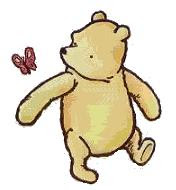Orwell's argument is that the English language is growing increasingly worse, portraying incompetence and no meaning.
Two cases of irony:
"This is a parody, but not a very gross one." -- Orwell is telling us to make our sentences clear, and easy, yet his description of his 'bad example of english' is not clear in itself. Gross, what does he mean by gross? Gross comes from the German word gro , which means large or big. And Orwell has been telling us not to take words from other countries, yet how can we do that, when our own language IS from other countries?
, which means large or big. And Orwell has been telling us not to take words from other countries, yet how can we do that, when our own language IS from other countries?
"A scrupulous writer, in every sentence that he writes, will ask himslef at least four questions...And he will probably ask himself two more: 1. Could I put it more shortly? 2. Have I said anything that is avoidably ugly?" -- Orwell is criticising peoples' writing, and is suggesting tips to ask yourself when creating a writing, yet, I wonder if he asked himself the same questions tha the is presenting us with. He says to ask yourself, "Could I put it more shortly?" and yet his own essay is extremely long!!!
Definitions:
Dying Metaphors - Worn-out metaphors which have lost all impressionable power.
Pretentious Diction - Foreign words used for their elegance, but in the process lose their original meaning.
Meaningless Words - Foreign words that are used with a vague and confusing meaning.
Ten Steps to Good writing:
#1 Use simple, every day words.
#2 Know what you want to say, before you start to write.
#3 Replace long, drawn out sentences, with short, to the point ones.
#4 Refrain form using foreign words to portray an english meaning.
#5 Read your work, to see if it makes sence to you.
#6 Make your work is clear, and easy to read.
#7 Use original thoughts.
#8 Always try to use the active, instead of the passive, when possible.
#9 Don't put in fluff - frilly nonsense that isn't important, and just used to take up space.
#10 Change your habits now, and start writing well.






